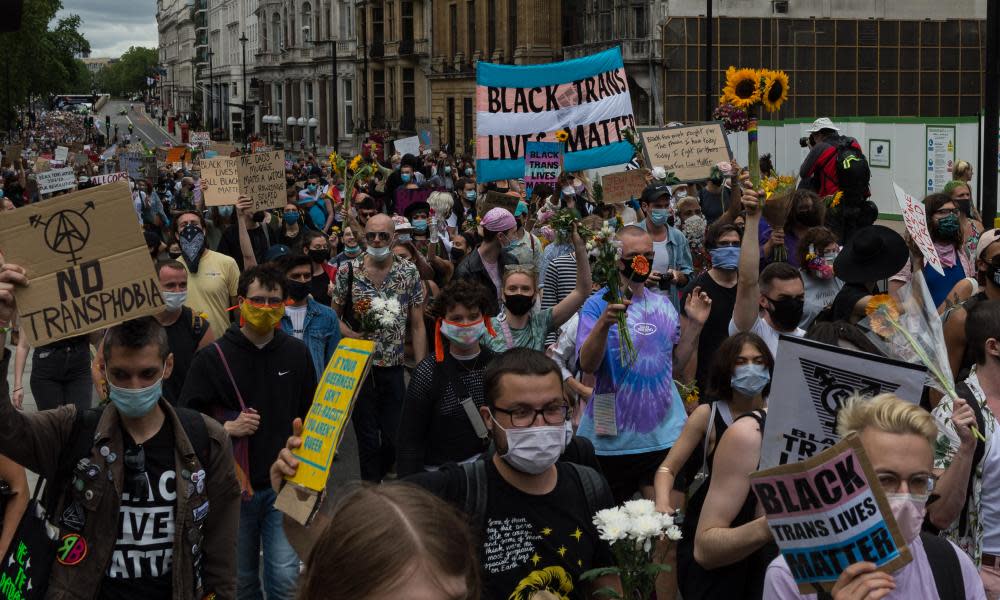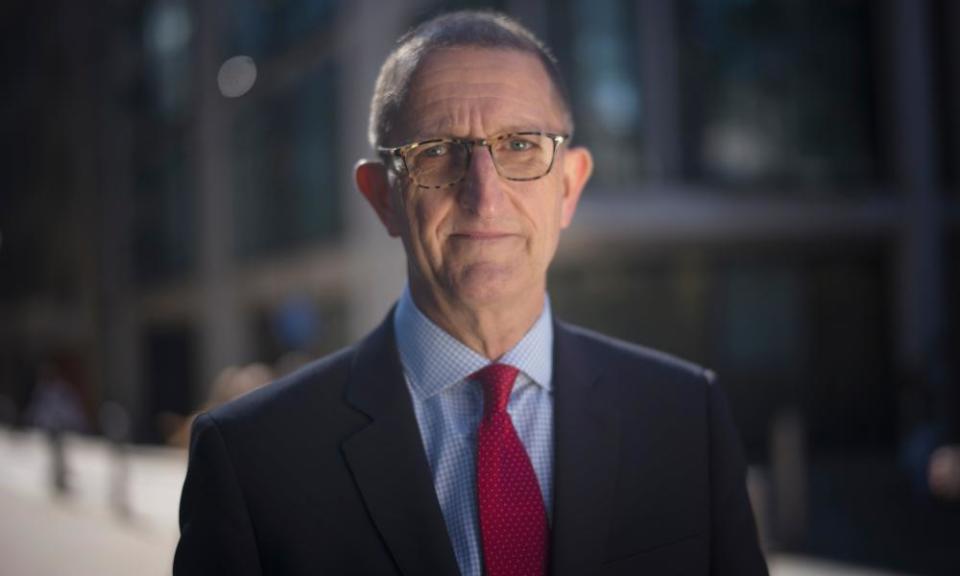'Polarised' debate on gender recognition is harming UK, says equalities chief

The departing chair of the Equality and Human Rights Commission has said the polarising debate around transgender rights will be damaging to the country if it continues.
In his final interview, David Isaac, who left his position on Saturday after more than four years in post, urged supporters and opponents of gender self-identification to recognise that they had much in common.
A bitter argument has developed between some women’s groups and trans rights supporters over proposed changes to the Gender Recognition Act that would allow trans people to change their birth certificate and have their identity legally recognised without the need for a medical diagnosis.
Supporters of the reforms say the current process is anachronistic, expensive and intrusive. But some women’s groups have voiced concerns about what self-identification could mean for areas such as single-sex spaces.
“We’ve been calling for greater protection for trans people,” said Isaac, “but I’m concerned, not just about the polarisation, but also the toxic nature of debate, which is about shutting down freedom of expression and stifling discussion.
“We have to acknowledge there are lots of difficult issues in relation to women-only spaces, but shouting at each other doesn’t help anybody. We need to move beyond that toxic debate so talking to each other, engaging in respectful listening even if you disagree, that’s the way forward.”
The EHRC supports the reforms. But Isaac said trans rights campaigners shared more with their perceived opponents than they often acknowledged.
“I think they need to listen to other views. Of course people have strongly held views, and of course they believe that trans women are women and they should be able to self-determine, but there are other people who don’t agree. There are lots of women who have been physically abused who are fearful, and we’ve got both groups who are anxious about being physically abused and are the subject of hate crimes, and this is currently the very thing that unites them.”

Isaac suggested that, on the majority of issues, there was “lots of common ground and lots of consensus that trans people shouldn’t be discriminated against”.
He added: “It’s just that we’ve got a few areas [where there is disagreement] – toilets, refuges and the age at which young people can actually begin treatment or block their hormone development – but on the rest there is real consensus, and we never talk about that.”
The government’s response to a consultation on changes to the Gender Recognition Act has been delayed for a third time.
“I think it’s disappointing: these are tough issues and I think we don’t resolve them by pausing the process,” Isaac said. “We need to look more carefully at how other countries apart from the UK and the US have dealt with these things. France and the Nordic countries have given greater rights for trans people to change their birth certificates. It may be these are more liberal environments where there is less polarisation, but they haven’t had the same toxic debate, and we need to learn from that and work out how we can replicate that. We as a society would suffer enormously if in a decade’s time we were still having this debate.”
Isaac also criticised the government’s decision to set up a new commission on ethnic disparities, in response to the Black Lives Matter movement. “I’ve said to government that the time for making recommendations is over,” said Isaac. “There’s a coherent strategy we’ve set out, a lot of the data already exists and we want government to take action.”

 Yahoo News
Yahoo News 
